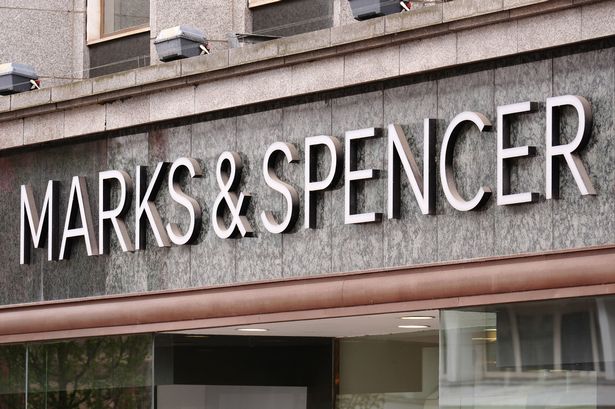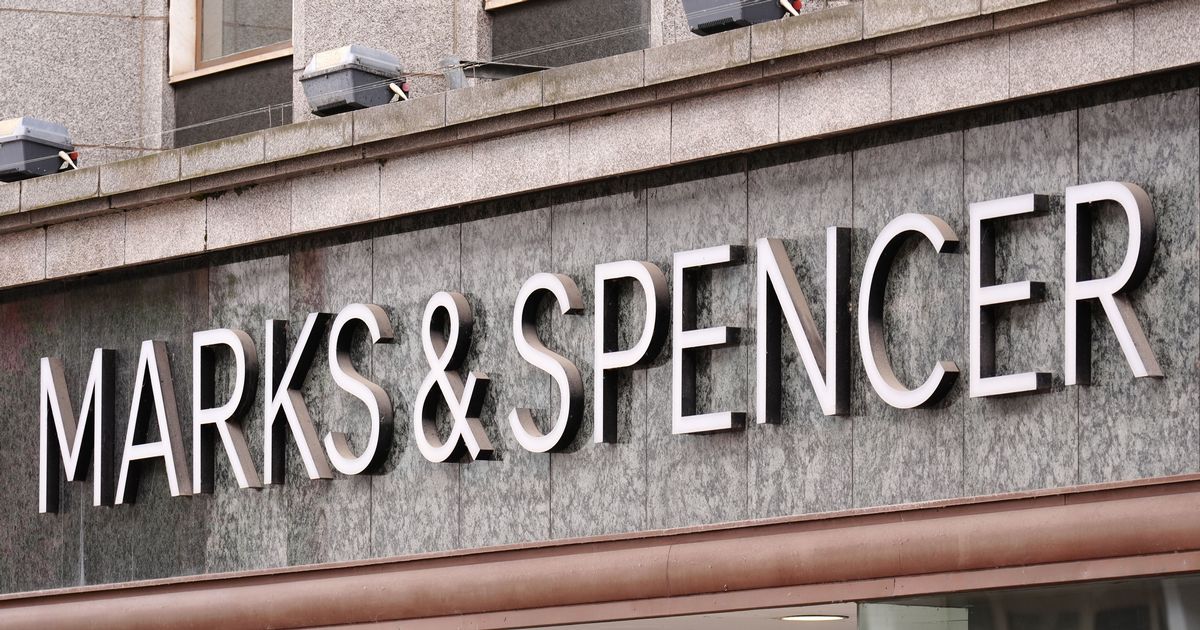M&S’ Food managing director has criticised the post-Brexit movement of goods across the Irish Sea, asking the UK government to “put an end to the Brexit bureaucracy that burdens both UK and Irish businesses” M&S’ Food managing director has criticised the post-Brexit movement of goods across the Irish Sea, asking the UK government to “put an end to the Brexit bureaucracy that burdens both UK and Irish businesses”(Image: Mike Egerton/PA Wire)
M&S’ Food managing director has criticised the post-Brexit movement of goods across the Irish Sea, asking the UK government to “put an end to the Brexit bureaucracy that burdens both UK and Irish businesses”(Image: Mike Egerton/PA Wire)
M&S’ Food managing director has criticised the post-Brexit transportation of items between Ireland and the UK.
Alex Freudmann shared his frustration over shipments he states have been delayed due to Brexit, five years after the public voted to leave the European Union.
He said one lorry of goods can need over 200 documents in order to complete its passage to the Republic of Ireland, stating details such as Latin names of chicken used in sandwiches are questions asked post-Brexit.
The boss said: “Tonight our trucks travelling to the Republic of Ireland were loaded yesterday and sat idle for 16 hours before the driver set off, now armed with over 200 pieces of paper.”
READ MORE: Anyone who’s shopped at M&S previously given four rules to follow after cyberattack
While M&S has many stores across Ireland and Northern Ireland, the company has said it still faces issues when transporting goods, as particular items such as some sausages, burgers and specific sandwiches, are not allowed to be sent across from the UK.
Mr Freudmann added the need for thousands of Export Health Certificates which must be signed by vets is costing the firm around £1 million per year, as well as playing a part in food waste and product shortages.
He said: “The Government is also looking at securing a Veterinary Agreement with the EU that will reduce the unnecessary bureaucracy involved in moving lasagne from London to Dublin, as well as importing chorizo from Spain.
“Around 7,000 different M&S products destined for Irish customers – around a third of our catalogue – require Export Health Certificates.
“And each certificate, bizarrely, needs a signature from a vet – costing well over £1million a year in vet fees and adding hours of admin time.
“This can lead to very long delays, wasted food and gaps on shelves for our valued Irish customers. We wholeheartedly support the Government’s plan to negotiate a Veterinary Agreement; the benefits would be significant, there is no discernible downside, and we will offer whatever help we can to aid the negotiations.”
He continued, discussing how the post-Brexit rules have affected the company, stating: “At M&S we have the highest standards in the industry for our food but the Brexit rules – constructed to deal with cross-sea container ships carrying long-life or frozen food – pay that no attention.
“They weren’t designed for modern supermarkets shipping thousands of individual products a relatively short distance across the Irish sea every day. Plus they were developed in a pre-digital era; relying on paper documents and physical checks and inspections.
READ MORE: Tesco warns over Clubcard feature affecting 3.5 million shoppers
“Today, almost everybody working in our depots is under the age of 50 and has grown up with computers. New starters at our depots look at us with bewilderment on day one when we have to ask them to pick up a pen and piece of paper to do the job.
“At any time, we can push a couple of buttons on a keyboard and see where every single one of our products is located – whether that’s in a depot, on a lorry, in a store or has just been bought by a customer. Officials are welcome to come and look any time they want.
“The Windsor Framework has eased movements to Northern Ireland, but it has come with huge cost and complexity, not to mention the ridiculousness of the labelling requirements that French Brie and Italian parmesan destined for the UK and made to EU standards must have “Not for EU” printed on the packaging.
“As well as bureaucracy for us, it is extra cost and time for our European suppliers. Which takes us to the nub of the issue – there is no difference in food standards between the UK and the EU so why do the rules pretend that there is?”
He added: “Five years on, it is time to put an end to the Brexit bureaucracy that burdens both UK and Irish businesses.
“My ask of the Government is to move with pace of action, not just words – at a time when the UK’s food businesses and farmers need all the help they can get.”
